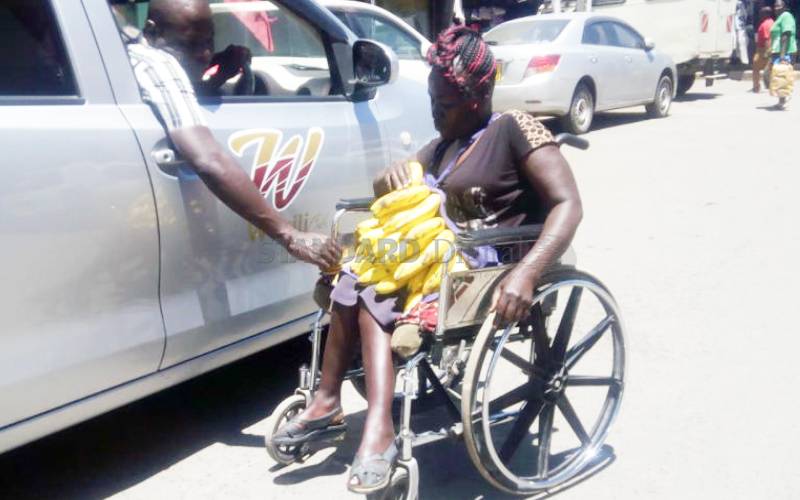×
The Standard e-Paper
Join Thousands Daily

Eunice Atieno sells bananas on a Nakuru street last Sunday. [Courtesy]
Pushing herself on a wheelchair down Kenyatta Avenue, a bunch of bananas on her lap, Eunice Atieno, 38, is an inspiration for many, who know her story, on the streets of Nakuru town.